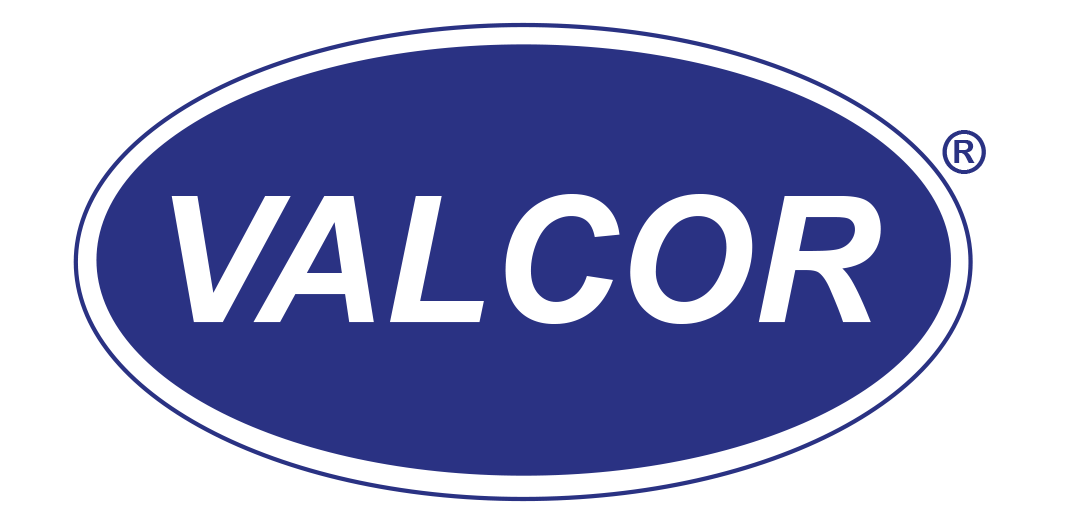Published on: October 31, 2019
By: Valcor Aerospace
Avionics Cooling Using Motor-Operated
Proportional Control Valves
The role of avionics in modern air and spacecraft are becoming more complex as they control more of the functions in these vehicles. Ultra-high-speed flight computer microprocessors and related support chips perform most efficiently in a very narrow band of operating temperature. Solid State Relays (SSRs) controlling other parts of the vehicle system generate substantial heat when energized. As flight vehicle designers work to reduce the weight of the vehicle, they are moving towards Fly-By-Wire (FBW) systems to control most or all aspects of the vehicle flight controls. FBW systems require a lot of power to actuate the sub-systems in a modern aircraft. Power demand is at its highest during takeoff and landing, when rudder, stabilizer and flaps are in constant motion. In spacecraft, roll, pitch, and propulsion thrusters are controlled electronically. Maintaining the ideal avionics operating temperature requires a precision liquid cooling system capable of fast response to changes in the thermal load imposed by the avionics. Simple air-cooled systems are a thing of the past. Air cooling cannot provide the necessary temperature precision in response to load changes.

Precision cooling of such sensitive avionics and related systems requires a complex system of temperature monitoring and closed-loop feedback control of the cooling media.
Many different approaches are considered when designing the temperature process control scheme of an avionics cooling system. Most industrial commercial off-the-shelf (OTS) temperature controllers monitor the coolant and turn an electric heater on and off to achieve the desired temperature. While relatively inexpensive, they are unable to react to rapid changes in coolant temperature. The electric heater must warm up, and cool down, in response to changes in the coolant temperature. This could take many seconds. For air and spacecraft, these OTS solutions are certainly not sufficiently reliable or fit for use in avionics cooling systems.
For flight applications where coolant temperature must be precise to protect sensitive electronics, the use of a proportional flow controller will provide faster response to changes in process temperature. Proportional flow control is achievable in many ways. Traditionally, a pulse-width modulated (PWM) solenoid valve is used to control the flow of the coolant. Pulsing the valve controls the desired temperature of the process media by increasing or decreasing the coolant flow. Also known as the bang-bang approach, the solenoid valve is pulsed by the temperature controller to alter the flow of coolant to precisely maintain the desired temperature for the electronics. Typically fast-acting, the solenoid valve provides good temperature control when new, but solenoid valves can have a finite life in high-frequency cycling, continuous duty service. As the valve wears, its performance degrades. Longer response times lead to less accurate temperature control. The tendency to stick open or closed as the valve element eventually wears could lead to a partial or total failure of the cooling system. In a system using PWM technology for temperature control, failure of the solenoid valve, or loss of power, results in the complete loss of temperature control. This could lead to premature failure of the avionics protected by the cooling system.
Another approach for consideration is the use of a precision ball valve. The ball valve provides long life, but to act as a proportional valving element, it must be equipped with a bulky valve positioner. The valve positioner provides an additional point of potential failure. Most positioners will fail closed in the event of power loss, resulting in the total loss of avionics temperature control. The ball valve and positioner can be sensitive to vehicle vibration, affecting performance. The valve and combined positioner are bulky, taking up valuable space in the vehicle.
In response to precision cooling control applications in the aircraft/aerospace market, Valcor Engineering’s Motion Control engineering team developed a unique Motor-Operated Proportional Control Valve (MOPCV) that provides rapid, smooth, proportional control of coolant. Using a proprietary variable-orifice design, the MOPCV provides infinite, extremely rapid-response temperature control without experiencing degradation of the valving element over time. This ensures exceptionally long reliability and operating uptime. Unlike typical actuated valves, the MOPCV is light and compact, with no external moving parts. Further, the cooling system designer can predetermine how the system reacts to power loss. The most desirable fail positions are either to fail in last position or fail in a predetermined flow position. If power is lost, coolant will continue to flow through the MOPCV to provide cooling of the avionics. While the thermal load continues to vary, the cooling system can continue to provide nominal protection to the avionics, minimizing a change in accuracy, or catastrophic failure due to excessive heating. However, the MOPCV can be configured to fail open or closed if the system engineer prefers this approach. The compact design minimizes the need for precious space available on flight systems in the physical space allocated to the cooling system. Vibration in the vehicle is not a factor in the performance of the MOPCV. For more information, contact a Valcor Sales Engineer via the form at the bottom of the page.
Since 1951, Valcor Engineering, with its rich heritage of providing custom-engineered solutions to the most difficult fluid control applications is your proven partner in projects that are too important to subject to off the shelf designs. Valcor can provide the components, or design and build the complete system for you project. Turnkey solutions are our specialty!
[contact-form-7 404 "Not Found"]
Recent Comments